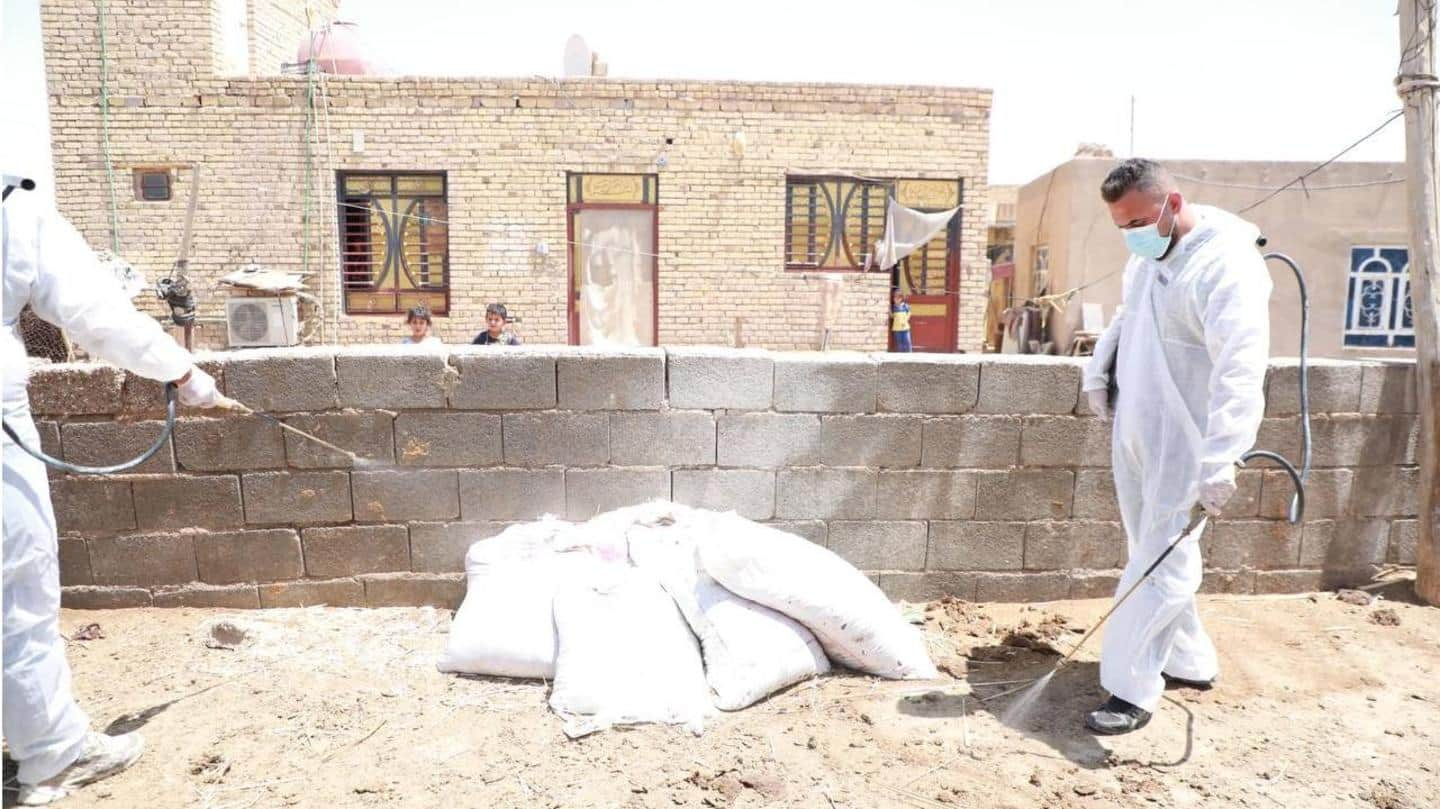
Iraq witnesses 'unprecedented' surge in deadly nose-bleeding fever
What's the story
Iraq is witnessing an outbreak of a deadly fever that causes people to bleed to death with cases surging at an unprecedented rate.
The disease, named Crimean-Congo hemorrhagic fever (CCHF), is spreading in the Iraqi countryside and has caused 19 deaths among 111 cases in humans this year.
The disease reportedly has no vaccine and causes death in about two-fifths of the cases.
Context
Why does this story matter?
Though the number of CCHF cases is still tiny compared with the COVID-19 pandemic, officials are worried as this year's number far exceeds cases recorded in the 43 years since the virus was first documented in Iraq in 1979.
Transmitted through ticks, the virus jumps from animals to humans.
According to the World Health Organization (WHO), CCHF's fatality rate is between 10% and 40%.
Details
What do we know about the disease?
The hosts of the virus include both wild and farmed animals like buffaloes, goats, and sheep.
"Animals become infected by the bite of infected ticks," said the WHO.
"The CCHF virus is transmitted to people either by tick bites or through contact with infected animal blood or tissues during and immediately after slaughter," it added.
Information
What are symptoms of disease?
The disease reportedly causes severe bleeding both internally and externally and especially from the nose of the affected patients. Alongside uncontrolled bleeding, the virus also causes intense fever and vomiting.
Cause
What is the cause of the outbreak in Iraq?
Ahmed Zouiten, the WHO's representative in Iraq, said there are several "hypotheses" for the outbreak of the virus in the country.
They included the spread of ticks in the absence of livestock spraying campaigns during the COVID-19 pandemic in 2020 and 2021.
"Very cautiously, we attribute part of this outbreak to global warming, which has lengthened the period of multiplication of ticks," he added.
Actions
Mortality seems to be declining: Zouiten
Zouiten, however, maintained that mortality seems to be declining as Iraq had mounted a spraying campaign while new hospital treatments also had shown "good results."
Reportedly, health workers, dressed in full protective kits, are carrying out spraying operations with pesticides on animals like cows.
Meanwhile, authorities are also monitoring slaughterhouses and cracking down on abattoirs that aren't following proper hygiene protocols.
Information
Red meat consumption takes a hit
The virus has also adversely affected meat consumption in the country, with many butchers saying cattle arriving for slaughter has fallen to half normal levels. "People are afraid of red meat and think it can transmit infection," said Fares Mansour, Director of Najaf Veterinary Hospital.